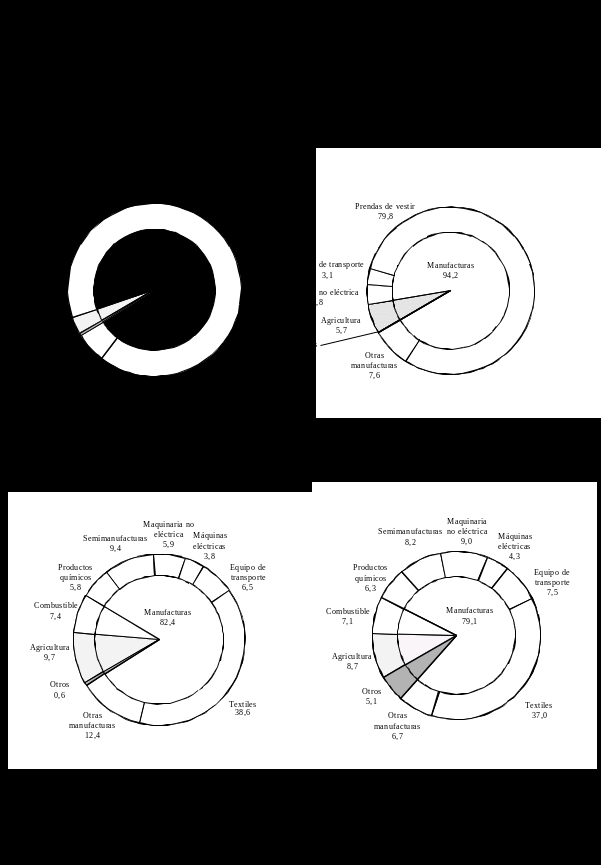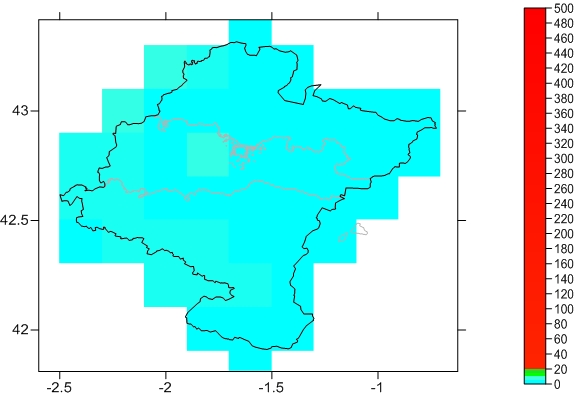s. lee akers, clerk & master eleventh judicial district of tennessee this document is not a definitive statement of the law, is for general
S. Lee Akers, Clerk & Master
Eleventh Judicial District of Tennessee
This document is not a definitive statement of the law, is for general
informational purposes only, is not a substitute for qualified legal
advice, and should in no way be relied upon or construed as legal
advice. If you want specific information on legal issues or wish to
address specific factual situations, you should seek advice from your
lawyer.
Claims – Timely and Proper Filing of Claims and Exceptions
In General
C&M must file all claims submitted after the appointment of a
representative; the filing does not create an inference as to whether
a claim is valid or timely filed. 1 The probate clerk is, however,
required to return unfiled any claim submitted more than 12 months
from Decedent’s date of death. 2
The effect of laws regarding the filing of claims is to require
payment of claims that are prima facie valid. 3
A claim properly (prima facie valid) filed, and timely filed, and
not excepted to within the time allowed has the effect of a judgment
against the estate. 4
The personal representative is not required to file an exception to
a claim void on its face. 5
Exceptions may, and often do, prevail even over claims that are
prima facie valid.
Payment of an estate debt up to $1,000 may be made by the personal
representative without a claim being filed.6 Such payment is made at
personal representative’s peril.
Part 1. Time To File Claim & Exception
Four potential periods in which claims are filed: 7
1.1. Before appointment of a personal representative. The law is
clear. The clerk shall return any claim submitted before the
appointment of a personal representative.8 Therefore, no exception is
made.
1.2 After appointment of a representative and within the time allowed
by T.C.A. § 30-2-306. A Claim submitted within this period is timely
filed provided the claim is filed within one year from decedent’s date
of death.9 The personal representative has until 30 days after the
running of the four month period to file an exception.10
1.3 After the time allowed by T.C.A. § 30-2-306 but before a year from
decedent’s death. These claims are governed by T.C.A. §
30-2-307(a)(1). The creditor must show receipt of actual notice of the
estate administration within the periods described in §§
30-2-307(a)(1)(A) and 30-2-307(a)(1)(B). The burden of proof is upon
the creditor on the issues: i) whether the creditor was known to or
reasonably ascertainable by the personal representative, or ii)
whether actual notice was properly sent in accordance with § 30-2-306.
The personal representative has until 30 days after receiving the
notice from the clerk of the filing of the claim in order to file
exception.11
1.4 More than one year after decedent’s death. All claims must be
filed within one year of decedent’s death.12 As any claim so filed is
barred, no exception is made; the clerk must return any claim filed
more than 12 months sfter Decedent’s death.
The law requiring the filing of claims provides only that exceptions
may be made.13 The alternative presented by the word may appears to be
a) to timely file an exception, or b) to allow the claim to become
final by operation of law. However, the word may only excuses the
filing of an exception when none is required. Miller v. Morelock, 206
S.W.2d 427 (Tenn. 1947) established that claims that are not prima
facie valid need no exception. However, the prudent administrator will
file an exception to any claim deemed invalid for whatever reason.
Part 2. Properly Filed Claims (Prima Facie Valid)
Not only must the claim be timely, as shown above, the claim must be
properly filed, i.e., the claim must be prima facie valid. T.C.A. §
30-2-307(b) establishes minimum requirements for a claim to be
properly filed: “When [a] claim is evidenced by a[n]…instrument, such
instrument or a photocopy…shall be filed; when due by a [Court
Order]…, a copy…certified by the clerk of the court where rendered
shall be filed; and when due by open account, an itemized statement of
the account shall be filed; and [the]…claim shall be verified by
affidavit of the creditor…which affidavit shall state…the claim is a
correct, just and valid obligation of the estate of the decedent, that
neither the claimant nor any other person on the claimant’s behalf has
received payment thereof, in whole or in part, except such as is
credited thereon, and that no security therefor has been received,
except as thereon stated.” Hence, there are 4 circumstances under
which a claim may be submitted:
Prima Facie Valid
Not Prima Facie Valid
2.1 Timely filed
2.2 Untimely filed
2.3 Timely filed
2.4 Untimely filed
2.1 Timely filed; prima facie valid. If the claim is excepted to, a
hearing must be held on the exceptions as they may, and often do,
prevail even over claims that are prima facie valid. If the claim is
not excepted to, the claim will become final after the period to
except.14
2.2 Untimely filed; prima facie valid. Some claims under this heading
may require a hearing; some may not. Certain untimely filed claims
should be summarily dismissed, such as those filed more than 1 year
after decedent’s death. 15 No reason to set a hearing if the claim is
one which cannot be filed. A hearing must be held, however, if there
is a possible exception to untimeliness. E.g. if the claim is filed
after the four months allowed by T.C.A. § 30-2-306 but before a year
from decedent’s death. These claims are governed by T.C.A. §
30-2-307(a)(1). The creditor must show receipt of actual notice of the
estate administration within the periods described in §§
30-2-307(a)(1)(A) and 30-2-307(a)(1)(B). The burden of proof is upon
the creditor on the issues: i) whether the creditor was known to or
reasonably ascertainable by the personal representative, or ii)
whether actual notice was properly sent in accordance with § 30-2-306.
Such a claim could not be summarily dismissed.
2.3 Timely filed; not prima facie valid. A claim not prima facie valid
should not be bootstrapped to the level of a prima facie valid claim
by reason of a hearing, even if there has been no exception filed.
Otherwise there is no need to require a claim to be prima facie valid.
2.4 Untimely filed; not prima facie valid. These claims can be
summarily dismissed.
1 T.C.A. § 30-2-307(d).
2 T.C.A § 30-2-307(d), Acts 2007, Ch. 8, eff. 03/28/07.
3 Miller v. Morelock 206 SW2d 427 (1947).
4 Brigham v Southern Trust Co., 300 SW2d 880 (1957); Warfield v
Thomas’ Estate, 206 SW2d 372 (1947).
5 Miller v. Morelock, 206 S.W.2d 427 (Tenn. 1947).
6 T.C.A. § 30-2-311.
7 There are two exceptions to this. A cause of action is not a “debt”
within the meaning of T.C.A.§ 30-2-307. Cause of action “claims” are
treated in two very distinct ways: 1) those causes of action in suit
at the time of Decedent’s death which are governed by T.C.A. §
30-2-320, and 2) those causes of action commenced after Decedent’s
death which are governed by T.C.A. § 30-2-315(c). Actions pending at
Decedent’s death must be revived within the same time period for
filing claims: i.e., four months from the first date of publication of
notice to creditors [T.C.A. § 30-2-306(b).] as excepted in T.C.A. §
30-2-307(a). T.C.A. § 30-2-320 mandates that the demand is legally
filed against the estate, “at the time of the filing with the
[Probate] [C]lerk…of a copy in duplicate of the order of revivor,
one…of which copies shall be certified or attested, a notation of
which shall be entered by the [Probate] [C]lerk in the record of
claims, as in the case of other claims filed. Pending actions not so
revived against a personal representative within the period prescribed
in 30-2-307(a) shall abate.” The mere filing of a claim in the probate
matter does not constitute proper revival. In those actions commenced
after Decedent’s death, the action must be commenced before the claim
is filed in probate. A “claim” founded on a cause of action pending in
another court is held in abeyance until the final determination of the
independent suit, whereupon, on the filing of a certified copy of the
final judgment in that independent action, the probate court is
authorized to enter judgment accordingly. [T.C.A. § 30-2-315(c).] As
long as the cause of action is timely filed after Decedent’s death,
the claim then filed in probate does not have to meet the requirements
of T.C.A. § 30-2-306(b) as excepted in T.C.A. § 30-2-307(a). But note
the twelve month limitation in T.C.A. § 30-2-310. If there is no
action pending on the cause of action when it is filed as a claim, the
“claim” can be summarily dismissed. Also note: judgments for child
support payments for each child subject to the order for child support
pursuant to this part shall be enforceable without limitation as to
time. T.C.A. § 36-5-103(g), Acts 1997, ch. 551, § 72, July 1, 1997.]
See also Anderson v. Harrison, C/A 02A01-9805-GS00132 (W.S., Jackson,
Jan. 1999).
8 T.C.A. § 30-2-307(d).
9 T.C.A. §§ 30-2-306, 30-2-310.
10 T.C.A. § 30-2-314(a).
11 T.C.A. § 30-2-314(a).
12 T.C.A. § 30-2-310. Limitation on time of filing claims. All claims
are barred after one year from decedent’s death. In fact, if the
estate administration is commenced more than one year from decedent’s
death, notice is not even sent to creditors T.C.A. § 30-2-306(f) and
by T.C.A. § 30-2-310.
13 T.C.A. § 30-2-314.
14 A claim properly filed and not excepted to within the time allowed
has the effect of a judgment against the estate. Brigham v Southern
Trust Co., 300 SW2d 880 (1957).
15 T.C.A. § 30-2-310. Limitation on time of filing claims. All claims
are barred after one year from decedent’s death. In fact, if the
estate administration is commenced more than one year from decedent’s
death, notice is not even sent to creditors T.C.A. § 30-2-306(f) and
by T.C.A. § 30-2-310.
Page 2 of 2 pages.
Claims – Timely and Proper Filing of Claims and Exceptions
Form 119P, Rev. 2007.08.02
 PERATURAN PRESIDEN REPUBLIK INDONESIA NOMOR 88 TAHUN 2006 TENTANG
PERATURAN PRESIDEN REPUBLIK INDONESIA NOMOR 88 TAHUN 2006 TENTANG ESTIMADO AGENTE DE VIAJES LE ENVIAMOS EL PROCEDIMIENTO PARA
ESTIMADO AGENTE DE VIAJES LE ENVIAMOS EL PROCEDIMIENTO PARA UNIVERSIDAD PANAMERICANA DE GUATEMALA FACULTAD DE CIENCIAS DE LA
UNIVERSIDAD PANAMERICANA DE GUATEMALA FACULTAD DE CIENCIAS DE LA LGA REPORT COLACOTWAY THE ON TRACK SURVEY 2014 ON
LGA REPORT COLACOTWAY THE ON TRACK SURVEY 2014 ON GEOMETRÍA COMPUTACIONAL – ALGORITMOS II VERSIÓN BETA MARCELO
GEOMETRÍA COMPUTACIONAL – ALGORITMOS II VERSIÓN BETA MARCELO NAME WHAT IS THE POPULATION OF TROUT IN
NAME WHAT IS THE POPULATION OF TROUT IN DENETİM PROSEDÜRÜ 1 AMAÇ BU PROSEDÜRÜN AMACI SISTEM BELGELENDIRME
DENETİM PROSEDÜRÜ 1 AMAÇ BU PROSEDÜRÜN AMACI SISTEM BELGELENDIRME CAMBOYA WTTPRS253 PÁGINA 13 IENTORNO ECONÓMICO 1)INTRODUCCIÓN
CAMBOYA WTTPRS253 PÁGINA 13 IENTORNO ECONÓMICO 1)INTRODUCCIÓN  ZAŁĄCZNIK NR 3 DO ZAPYTANIA OFERTOWEGO NR 114VIDOK UMOWA
ZAŁĄCZNIK NR 3 DO ZAPYTANIA OFERTOWEGO NR 114VIDOK UMOWA XV NAVARRA FIGURA XV1 CONCENTRACIÓN MEDIA ANUAL DE SO2
XV NAVARRA FIGURA XV1 CONCENTRACIÓN MEDIA ANUAL DE SO2 AMERICAN COLLEGE OF THERIOGENOLOGISTS BASIS FOR POSITION ON MANDATORY
AMERICAN COLLEGE OF THERIOGENOLOGISTS BASIS FOR POSITION ON MANDATORY